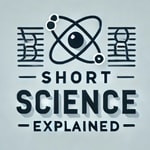Short Science Explained – Détails, épisodes et analyse
Détails du podcast
Informations techniques et générales issues du flux RSS du podcast.


Classements récents
Dernières positions dans les classements Apple Podcasts et Spotify.
Apple Podcasts
🇬🇧 Grande Bretagne - physics
12/08/2025#48🇺🇸 États-Unis - physics
12/08/2025#93🇬🇧 Grande Bretagne - physics
11/08/2025#42🇺🇸 États-Unis - physics
11/08/2025#88🇨🇦 Canada - physics
10/08/2025#100🇬🇧 Grande Bretagne - physics
10/08/2025#39🇺🇸 États-Unis - physics
10/08/2025#84🇨🇦 Canada - physics
09/08/2025#100🇬🇧 Grande Bretagne - physics
09/08/2025#35🇺🇸 États-Unis - physics
09/08/2025#82
Spotify
Aucun classement récent disponible
Liens partagés entre épisodes et podcasts
Liens présents dans les descriptions d'épisodes et autres podcasts les utilisant également.
See allQualité et score du flux RSS
Évaluation technique de la qualité et de la structure du flux RSS.
See allScore global : 59%
Historique des publications
Répartition mensuelle des publications d'épisodes au fil des années.
Quantum Physics: Understanding the Basics
Épisode 1
mercredi 18 septembre 2024 • Durée 02:33
Key concepts discussed include:
- Wave-particle duality, where light behaves both as a wave and as a particle depending on how it is observed.
- Superposition, illustrated by Schrödinger’s cat, where particles exist in multiple states simultaneously until observed.
- Quantum entanglement, where two entangled particles affect each other instantaneously, no matter the distance.
Blake emphasizes that although quantum physics seems strange, its principles are driving revolutionary technologies like quantum computing. The episode encourages listeners to embrace the wonder of the quantum world.
Short Science Explained Trailer
mardi 10 septembre 2024 • Durée 01:00
The Science Behind Black Holes
Épisode 3
mardi 24 septembre 2024 • Durée 02:52
You'll learn:
What is a black hole?
A region in space where gravity is so strong that nothing, not even light, can escape. Black holes form from the collapse of massive stars, creating a point of infinite density known as the singularity.
The Event Horizon:
The boundary surrounding a black hole, beyond which nothing can return. This invisible "edge" plays a crucial role in the way black holes interact with their surroundings.
Time Dilation:
How time slows down near the event horizon due to the immense gravitational pull, creating a mind-boggling effect where time passes differently near a black hole compared to the rest of the universe.
Supermassive Black Holes and Quasars:
These giants, located at the centers of galaxies, emit powerful jets of radiation and may play a key role in galaxy formation and evolution.
Hawking Radiation:
Stephen Hawking’s discovery that black holes emit a faint radiation and can eventually evaporate over time.
The Big Bang Theory: How the Universe Began
Épisode 2
mardi 24 septembre 2024 • Durée 02:24
- The early universe was a dense, hot mixture of particles that eventually formed stars and galaxies.
- Dark energy is causing the universe's expansion to accelerate.
Dark Matter and Dark Energy Explained
Épisode 5
mercredi 25 septembre 2024 • Durée 02:46
- Dark matter accounts for 27% of the universe and helps explain how galaxies hold together.
- Dark energy, making up 68% of the universe, is responsible for the universe's accelerated expansion.
- Combined, dark matter and dark energy constitute 95% of the universe, though they remain largely unexplored.
How Stars Are Born and Die
Épisode 4
mercredi 25 septembre 2024 • Durée 02:53
- Stars form from collapsing gas clouds and ignite through nuclear fusion.
- Small stars have long, stable lives, while massive stars burn bright and die young.
- A star’s death contributes essential elements to the universe, recycling materials for future celestial bodies.
The Search for Extraterrestrial Life
Épisode 7
jeudi 26 septembre 2024 • Durée 02:52
- Mars, Europa, and Enceladus are promising locations for the search for microbial life within our solar system.
- The search for intelligent life, through efforts like SETI, is ongoing, but the vastness of the universe makes it a challenging task.
- Exoplanets in the habitable zone could hold the key to finding extraterrestrial life.
- The search for life isn't just about finding Earth-like conditions but discovering life in places we may not have imagined.
The Multiverse Theory: Are There Parallel Universes?
Épisode 6
jeudi 26 septembre 2024 • Durée 02:30
- The Multiverse Theory posits that our universe is one of many parallel universes.
- The Quantum Multiverse arises from quantum mechanics, suggesting new universes are created with every decision.
- The Cosmological Multiverse comes from the idea of cosmic inflation after the Big Bang.
- Proving the existence of parallel universes is still beyond our scientific capabil